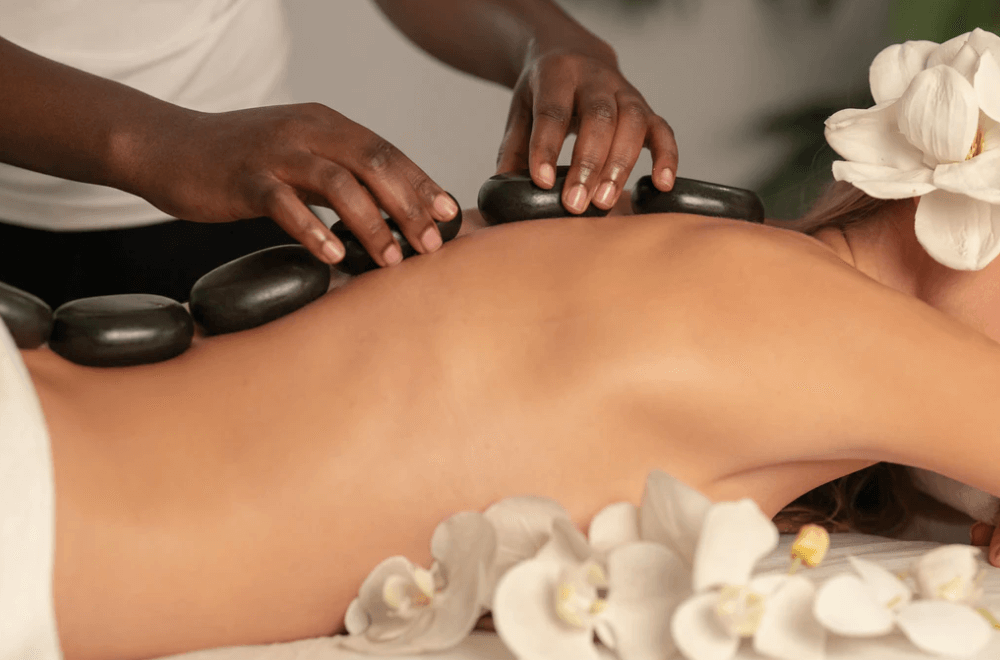Your Cart is Empty
HYDROSOL Fans! First order 15% OFF. Use code [HD15] Free Shipping Worldwide!

Aromatherapy is a holistic healing treatment based on natural extracts (essential oil and hydrosol), that are absorbed into the body through the respiratory tract or skin by means of massage, inhalation to relieve mental stress and improve physical health.
Aromatherapy can be traced back to ancient civilizations such as Egypt, India, China, Greece, and Rome, and was initially used for spiritual or religious purposes, meditation, etc.
“Aromatherapy” is a new name that has only been used in recent years. The French chemist René Maurice Gattefossé, who published his research results in a scientific journal in 1935, the name was first introduced “Aromatherapie” (French). The word is derived from Latin, Aroma-ἄρωμα(Greek), means fragrance, aroma; and θεραπεία- therapie (Greek).
Since ancient times, people have discovered that certain aromatic plants can help to relieve pain and discomfort, and thousands of years ago in the pharmacopeias of ancient civilizations, there are detailed records of herbs for healing, even observing that animals instinctively seek natural herbs to cure their illness. That the experience of aromatic plants can cure diseases has been handed down for a long time and continues to this day. In addition, the experience of Gattefoss'e confirms the scientific validity of the essential oils of the plant. In other words, "the essential oils, because of their excellent permeability, reach the deeper tissues of the skin, where they are absorbed by the tiny veins and finally reach the organ being treated through the blood circulation".


Absorption from the respiratory tract is the most common and easiest way for the human body to absorb essential oils. The odor molecules of essential oils are transmitted to all organs of the body and to the limbic system, which is responsible for the following functions: olfaction, memory, emotion, autonomic response, etc. This is called “the Visceral brain”, “the Emotional brain” or “the Olfactory brain”.
Inhalation
Breathing is especially important, breath carries the energy of life, and using plant essential oils for Abdominal breathing allows us to breathe deeply, bringing more energy to our body and mind.
Purification and detoxification: Deep breathing will accelerate the removal of toxins from the body and promote the elimination of waste gas from the body.
Replenish nutrients: Proper breathing increases the body's oxygen content and allows the body's immune system to function at its maximum capacity.
Promote regeneration: It helps to improve and promote heart, lung, gastrointestinal, liver, and gallbladder functions and relieves the troubles caused by chronic diseases.
Inhalation includes the Diffuser method, Steam inhalation, dry evaporation, Spray, And Palm rubbing method.
Breathing exercises
The abdominal breathing method is used. When inhaling, the abdomen is maximally expanded. When exhaling, the abdomen is contracted inward to the maximum. The time-frequency is performed according to the 142 rule: that is to say, the ratio of inhalation 1: stop 4: exhalation 2. It is recommended that the practice starts with 2 seconds of inhalation.
Inhale for 2 seconds, stop for 8 seconds and exhale for 4 seconds; inhale for 3 seconds, stop for 12 seconds and exhale for 6 seconds; and so on. You can decide the length of time according to your breathing, three times a day, morning, noon, and night, 3 deep breaths for each essential oil, five groups of 15 deep breaths in total.
Ingestion
Undiluted pure essential oils are generally not recommended for direct oral use. Essential oils diluted with vegetable oil/milk/honey are safer, but the variety and dosage should be determined in consultation with a professional aromatherapist. Note: British aromatherapy focuses on health maintenance, so oral use of essential oils is not recommended. The German and French aromatherapy systems are closely linked to the medical system, so there are many clinical cases of oral use of essential oils for reference. Whether or not essential oils need to be taken orally is not a matter of opinion, but depends on the particular situation.
Topical Application
The essential oil has strong permeability because of its extremely small molecules, which can be quickly attracted through the skin and penetrate deep into the skin tissue to reach the blood, lymph, and other circulatory systems. After the action of essential oil in the body, it can be completely excreted by the body because it is a natural substance, such as massage, bath, soaks, etc. The only diluted essential oil can be applied directly to the skin.
Common essential oils that you can use without worries.
Some essential oils may irritate the skin. Due to high concentrations, photosensitivity, and sensitization.
We can avoid most skin irritation by diluting essential oils with carrier oils. Certain essential oils are irritating skin and should be treated with caution, especially the following representing the aromatic chemical family.
Oregano: Clove Bud, Holy Basil, Winter Savory
Phenols: Fragrance aldehydes: Ceylon Cinnamon, Chinese Cinnamon
Terpenes: Lemon Eucalyptus, Cymbopogon citratus, Lemon Myrtle
Monoterpenes: Thyme, Carum copticum, Pinus sylvestris
Certain citrus peels essential oils, such as lemon, sweet orange, bergamot, etc., and some essential oils from the Umbelliferae, such as round-leaf angelica, carry strong photosensitivity. When used in skincare, their dilution concentration should not exceed 0.5% and sun exposure should avoid skin irritation and pigmentation.
For some people with fairly sensitive skin, special attention is to be paid to some aromatic molecules such as limonene, sedum, geraniol, citral, acacia alcohol, etc., which may create an allergic risk.
It is recommended to perform a 48-hour allergy test before using the oil for the first time, diluting the oil and dropping it on the inside of the elbow to observe any adverse reactions.
Comments will be approved before showing up.